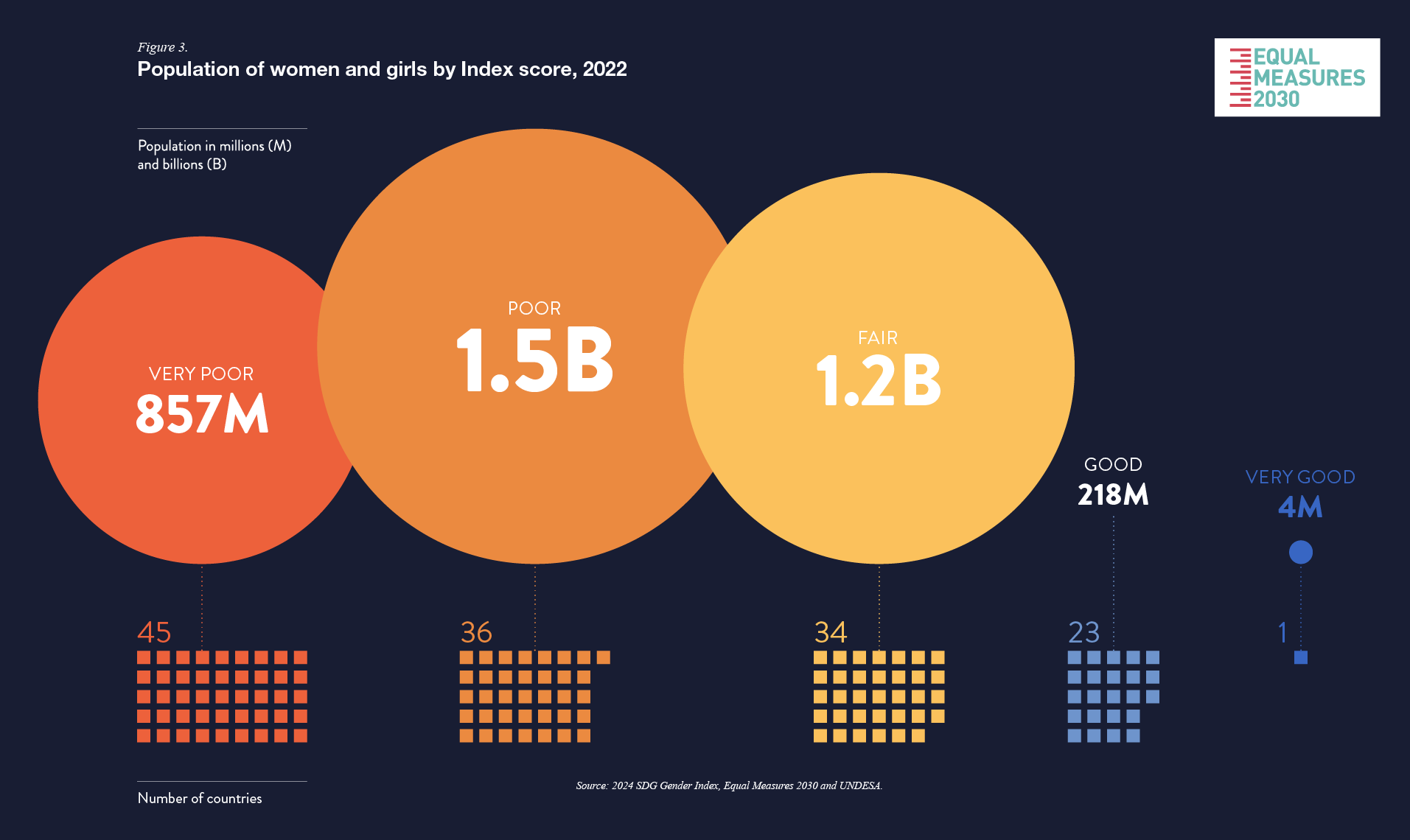Deafening Silence on Gender Equality at the UN’s Summit of the Future: Why Gender Equality Deserves More Than a Mention
When world leaders take to the podium during the United Nations General Assembly (UNGA), they have just a few minutes to broadcast their view on the world’s priorities. For all the criticism of the UNGA as a ‘talking shop’, in what other global forum do we get to see a parade of the world’s leaders show up in person and speak, one by one and on an equal footing?
This year the UNGA included a one-time event in the form of the Summit of the Future; not only would world leaders come together for the annual General Debate, but they would attend a special Summit to adopt a new Pact for the Future and to share their perspective on what our collective future should look like and how to secure it. Being in the (admittedly, often mostly empty) General Assembly chamber during the Summit of the Future felt like an enormous privilege.
But, as I listened to world leader after world leader deliver their 5 minute address on ‘the future’, I was struck not just by the persistent absence of women’s voices (more than 180 world leaders spoke during the Summit, and just 21 were women) but by the near-total absence of gender equality as an issue or priority that must be addressed if we are to reach the vision laid out in the Pact for the Future and the underlying SDGs.
The silence on gender equality.
Across nearly 20 hours of speeches on the world’s most pressing issues, ‘gender equality’ was mentioned a mere 9 times by 8 out of 180 countries (the award for two mentions in one speech goes to Uzbekistan.) These numbers are shockingly low, considering that 74% of the Sustainable Development Goals (SDGs) are directly or significantly reliant on gender equality, and that the Pact for the Future was specifically designed to “turbocharge” the SDGs.
Number of mentions of different terms from leaders during the Summit of the Future
At best, cutting gender equality from the core of these global discussions reflects a misunderstanding that these rights have already been achieved or will naturally occur as a by-product of other progress. It might also be a result of the siloed approach that we often see taken to address the SDGs. Despite their deep intersections, climate, economy, conflict and gender inequality are routinely addressed in isolation from one another, with many considering gender equality as a ‘women’s issue’ and not a fundamental factor of success for all goals.
More sinisterly though, the silence on gender equality may be linked to the global pushback on women’s rights that feminist movements have been witnessing around the world. It has become clear that there is a coordinated and well-funded community of actors dedicated to halting and rolling back gender equality, along with a rise in right-wing, nationalist, populist, and antidemocratic governments with strong anti-feminist stances. These governments are already having tangible impacts on laws, policies, and investments in women’s and girls’ rights to health, education, and more
Since the SDGs were adopted in 2015, we have seen growing resistance to language like “gender-responsive” and “gender-mainstreaming” in key international negotiations. Advocates noted significant pushback against ‘gender expansive’ text during CSW in 2024, with several Member States challenging language that has long been accepted. This phenomenon has become so common and systemic within the UN that it has been given its own term; ‘norm-spoiling’ – referring to an agenda that seeks to undermine the legitimacy of gender equality and women’s rights norms.
Shrinking civic spaces and sidelined voices
This pushback is paired with a shrinking civic space in global governance. In 2023, CIVICUS found that only 3.2 per cent of people lived in countries with open civic space and feminist movements are noticing this acutely.
From the outset of the Pact deliberations process, youth and feminist civil society were sidelined. Advocates noted that there was little transparency and accountability around civil society inputs to the process, leading to disillusionment and disengagement from the movement around the Pact. This lack of inclusion, combined with vocal anti-rights movements, resulted in a weakened Pact for the Future which threatens not just progress on gender equality, but the success of the entire 2030 agenda.
“A Pact for the Future without strong transformative commitments on gender equality will fail to deliver on the future we need to address the current and coming crises. Nothing about us without us!” – Aarushi Khanna, Asia-Pacific Regional Lead
A Gender-Equal Future is possible, but not like this.
In a world with such dedicated pushback against the rights of women and girls, we cannot brush aside the lack of attention to gender equality and women’s voices at the world’s most important institution for multilateralism. Global institutions like the UN and major summits like the Summit of the Future set the tone for national and local priorities. When gender equality is neglected on the global stage, it signals to member states that it is not a pressing concern.
We cannot afford to let this message stand. Not with just six years left to achieve the goals and no country on track to achieve gender equality across the goals. The negligence of gender equality is already affecting women and girls, with 2.4 billion women and girls living in countries with ‘very poor’ or ‘poor’ scores according to the 2024 SDG Gender Index.

Moreover, nearly 40% of countries – home to over 1 billion women and girls in 2022 – stagnated or even reversed progress. If this backsliding gathers pace, gender inequality could be worse globally in 2030 than it was in 2015.
As we look ahead to the next year, we have the 30th Anniversary of the Beijing Platform for Action (the most progressive blueprint ever for advancing women’s rights), Brazil’s G20 in November, COP29 in Azerbaijan, Canada’s hosting of the G7 in 2025 and other global convenings, we must demand leaders acknowledge the vital role of gender equality, and the voices of women and feminist movements in these spaces. Gender equality is not a side issue – it’s fundamental to solving the world’s most pressing problems, and it’s time for world leaders to act like it. The future of half the world’s population – and indeed, the success of our global goals – depends on it.








